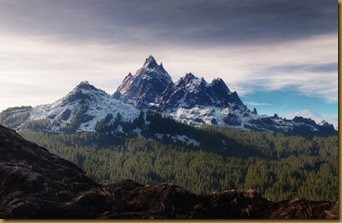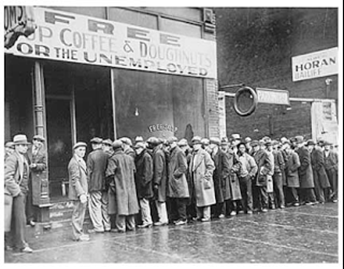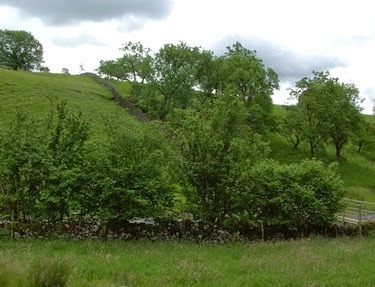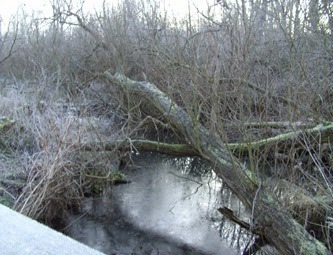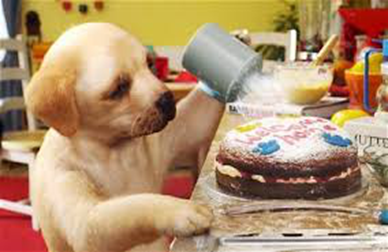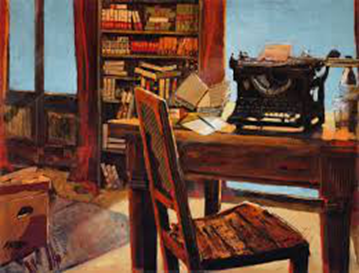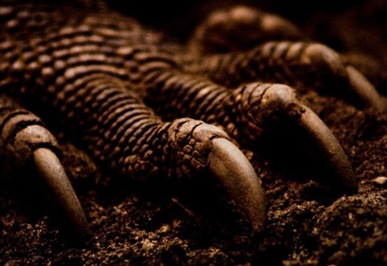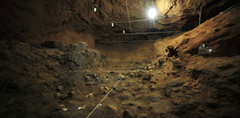David Hadley's Blog, page 107
March 24, 2014
To Touch These Clouds
To Touch These Clouds
Down on the ground the grass will grow
while birds reach out to touch the clouds.
We could have once expected such
small portents shaping all our dreaming
as we so often ask for some
acceptance of so much we want.
Even though there are shadows here
amongst us as we make our way
between these rocks that fill these paths
towards the summits of our hills.
Up where we hope to emulate
the birds and reach out, touch these clouds
which darkened all our promised skies
and turned us from our green-soft valleys.
To climb these hillsides in the hope
of finding something here to point
towards. A promise offered here
of something better than we know.
Before we turn back from the sky
returning to our valley lives
to live in clouded shadows again.
[Books by David Hadley are available here (UK) or here (US).]

March 23, 2014
Queue Theory
There was a time, but then there would be. For if there was no time there would have been nowhere for the was to happen and we'd all be standing around feeling foolish, wishing we were waiting for something, but without the time element waiting does become somewhat problematical.
As Professor Eigenvector Electronvolt, emeritus professor of Queueing and Waiting theory of the Tipton Institute of Technology (TIT) recently stated, 'a queue needs both time and space to be a queue, without it everyone there is just dicking around.'
This ground-breaking theoretical breakthrough has galvanised the entire field* of queueing, both at a theoretical and practical level. Recent experiments at the Large Queue Collider on the Tipton-Wednesbury border have concentrated mainly on what happens at two points. First, where the ends of the queue meet the target – such as a Post Office Counter or airline check-in desk, where the queue particles meet and unmoveable object. Secondly, at the other end where the queue interacts with the normal day-to-day world. The rear of the queue, where it meets the ordinary world, has been well-understood since Newtonian times and Newton's Laws of the Queue still hold strong, especially his Third Law which – of course – deals with the mathematical consequences of queue-podging.
However, recent work has mainly concentrated on the other end of the queue, mostly at a theoretical level as busy physicists don't have time to spend in queues, except when signing in to top-flight conference venues in exotic locations. Consequently, a lot of work in this area has been undertaken by postgraduate researchers, who – of course – have little else to do other than stand around waiting for someone to notice them.
Therefore, researchers in this area hope that in the next few years they will be able to confirm the existence of the so-far, only theoretical 'Next Please,' particle. Theory suggests such a particle should exist but has been so rarely encountered down at the front of the queue, leading some queue physicists to doubt it exists.
*Obviously queuing in a filed has its own specialised theoretical and practical sub-divisions, mainly concerned with the toileting arrangements at music festivals (wellies advised).
[Books by David Hadley are available here (UK) or here (US).]

March 22, 2014
First Move
She stood, waiting, listening. The air was calm, quiet, apart from the occasional bird song from the woodland over to her right. She raised her head, cocking it to the left and then the right, but there was nothing beyond the birdsong.
She moved out of the shadow of the rock, slowly, listening all the time, her eyes searching for any movement in the landscape around her.
The woods over to her right were less than fifty yards from the rock, but still she did not know. The ground over the other side of the rough track rose to a peak around 100 yards away from her. There could se someone up there now, watching her.
She waited, unsure.
Mira was a city girl; she did not know how it worked out here in the countryside. Back in the Warrens, she would have escaped by now, nipping down some shadowy alleyway, or across the rickety roofs to one of her many places of refuge.
She would know who was chasing her and why.
Out here though, in this alien landscape of trees, grassland and the incessant birdsong, she felt unsure, uncertain.
She did not like the way the grass was waving up on the peak of the rise. She did not know if grass naturally moved like that, or if something – or worse – someone, was up there stalking here.
She moved back into the shadow of the rock. From what she could see there was not much daylight left. Perhaps then she would make a move; that is unless there really was something – or someone – up there watching her and they moved first.
[Books by David Hadley are available here (UK) or here (US)]

March 21, 2014
The Crying Wind
So, the summer came, after such a long winter. The weather took us by surprise, as it always does up here in the Wildlands. One day there was a howling gale and snow falling, even though the calendar called it the end of spring. Wearily, we dragged ourselves inside our furs once again for our patrols and trudged off into the wind.
Borca said, as he always did, when we set off: ‘Fuckin’ wind. Which ever way you face to always blows right in your face.’ We all laughed, as we usually did, and agreed. Borca was right though, whichever way you face, the wind always seems to blow straight at you. It is a sharp wind that steals the breath from your mouth and makes your eyes run. The locals, the Wildfolk, call it the crying wind, and all of us who spend time at this garrison know why. After all, they say it makes you cry so that you are prepared for when it steals everyone, and everything, you care about from you.
So we set off trudging around the routine march with the gale flinging barrel-loads of icy sharp snow into our faces, each thinking that this winter would never end and that we would all die frozen in the ice and snow; ice and snow that would never end.
Then, next day, it was summer and we woke to sunlight and birdsong and – for once – the air was warm. I threw the bedcovers back, letting the furs fall to the floor and just enjoyed the feeling of the warm sunlight, streaming in from the window, on my skin. Hella moaned and muttered in her sleep, but I ignored her and just lay there enjoying the sun, but only for a while.
For we all know that when the winter is over, that is when the savage tribes from the North come south, and this time - after such a long deadly winter - we knew we were no longer strong enough to stop them.
[Books by David Hadley are available here (UK) or here (US)]

March 20, 2014
Wildlife Documentaries of the Future
Well, as you know if you are a devotee of nature and wildlife programmes on the TV, these days it is rare to see the Attenborough in the wild. At least in his native habitat downwind from any rutting wild animals. Some even claim the TV naturalist is becoming an endangered species, especially with the possibilities of miniaturisation and remote operation of today's camera technology.
There are some, indeed, who believe the whole business of going out into the back of beyond, just to film various animals either having it off or eating one-another, and sometimes both, is no longer a viable business model. Especially in these days of reduced budgets, receding hairlines and the relative paucity of camera-ready totty in the field. Let alone the expense of getting some out of work former top-flight actor to do the voice-over when all else fails.
Critics point to the increasing success of CGI films featuring cartoon animals with far more endearing personalities than their natural wild analogues. As well as the merchandising prospects of some of the more engaging artificial creatures.
So, in future, it looks as though computer-generated virtual animals will replace today's wildlife documentaries. Programmes where the animals can go beyond the mere rutting and devouring with, and of, one-another and go on to do more adventurous activities, up to and including saving the world from mankind in cute and endearing ways. This will leave both the possibilities of numerous sequels to each programme and the very real possibility of significant merchandising sales as the creatures grow into popular characters.
All in all then, a much more rewarding televisual experience. Much better than watching, yet again, some old bloke crouching behind a bush, muttering on about how exciting it is to be this close to a pair of wild creatures either copulating with, or eating, one-another.
[Books by David Hadley are available here (UK) or here (US).]

March 19, 2014
Each Word is Less Than a Moment
All these words that fall across the page like snowflakes settling, like rain falling, like the tears that stain the page when there are no words left and still far too much to say. The words themselves shy away from the page, away from permanence, wanting only to be fleeting moments, there, then lost on the breezes that blow all the possibilities from now away into the unreachable past.
Each word is less than a moment, waiting, heaping up beyond the reach of the hand that could take those waiting words and pin them to the moment. Then spreading them out on this page to say all that needs to be said, before the moment is lost, before the time is gone, before there is nothing left to say.
She sits at the table, pen in hand, watching the tears fall onto the blank page. Next to her unmoving hand are the crumpled balls of discarded pages that didn’t get close to anything she wanted to say. A heap of words that danced around across her mind and over the page, none of them getting close to what she wanted to say, like dancers dancing apart and alone, her thoughts and the words never joined hands, never danced together across the page, creating something new out of all she wanted to say.
Now, there is only silence; a silence and the blank page that waits for her words. Now she knows the page will stay blank because there are far too many words and she had far too much to say for a piece of paper to hold.
So she stands, walks out leaves the empty desk and the blank page and the pen behind as she closes the door on them and dries her tears before walking away.
[Books by David Hadley are available here (UK) or here (US)]

March 18, 2014
Ye Olde Toppe Gear
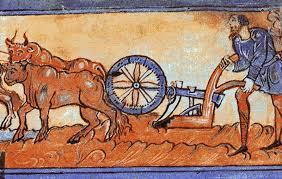
Hello and welcome to this week's edition of Ye Olde Toppe Gear. This week Richard de Hammond field tests the new Porsche two-oxen plough. Meanwhile James of May takes the new Land Rover hay cart out on some of Britain's rural byways and off-road. Meanwhile,the Stig takes the new British warhorse out on our track to see how it compares to the European warhorse and even the latest hot hatchback mounts from the Saracens.
Also, I Jeremy Lord Clarkson, discover just which is the best vehicle to use when going on a pilgrimage to Canterbury. Later, we have Little John from the world-famous band of the Merry Men taking our reasonably-priced mule around our track later on.
Before that, we'll have, a special report from a muddy field near Agincourt where we see what happens when a bunch of poncy modern French knights go up against the traditional British longbow. We think you'll be surprised at the results though.
First, though, the news. There is talk at the King's court of introducing a national speed limit of three miles an hour on all British roads, including what remains of all the Roman roads. Although, judging by my ride into the studio this morning down Watling Street, the possibility of achieving such high speeds is almost impossible given the poor state of the roads. Especially, given the fact most of them turn into a muddy swamp. As for the talk of adding safety features such as speed humps, must roads have them naturally these days.
Anyway, talking of mud, here's Richard de Hammond with his report on the new Porsche two oxen superplough.
Run the film!
[Books by David Hadley are available here (UK) or here (US).]
March 17, 2014
Where the Shadows Belong
It comes slow and careful through the darkness. It feels at home in the dark, light reveals too much. The shadows and dark places are a home. It can feel the prey as it moves oblivious through the darkness.
There was a time long ago, many prey lifetimes ago, when it would haunt the dark woods, waiting for the prey to come into the deep night of the forest. It would wait high in trees, or low in the undergrowth, for the prey to blunder into its reach. Then it would stretch, grab and devour, leaving only a memory for the prey’s kin to mourn.
Then, though, it moved, made its home in the prey’s cavernous cities. There were more shadows, more dark places and much more prey. The creature could sit up high on the roofs and watch. It could wait for the choicest prey to pass by. The creature could hide in the deep, almost solid, darkness in the cellars and basements for the prey to come by, sometimes oblivious, sometimes wary. But, all too often, wary of other dangers than the creature waiting to rip their lives away.
The creature knew this world belonged to it, and not to the prey, and it liked it that way.
[Books by David Hadley are available here (UK) or here (US)]

March 16, 2014
Archaeology
Archaeology
And here is something newly found.
It sits here, waiting on the palm,
in one cupped hand, and makes its shape
from limits it can then transcend.
It's more beyond itself enclosed,
contains the distances of time
and history within itself.
Its turning form can speak to us
of ages long ago and gone,
to times before the modern now,
when other lost unknowable
wise hands then grew and shaped its form.
But still it will remain right here,
becoming this new meaning taken
by every hand that holds it tight.
Each making new connections back
along that trodden path of time.
We listen now to sounds, echoes
of times, ages long past and gone.
Always we have long history
behind us, somehow reassuring
when walking down these twisting paths
in these now fading footsteps taken here
by earlier, forgotten, generations.
[Books by David Hadley are available here (UK) or here (US).]

March 15, 2014
The Wedding Party
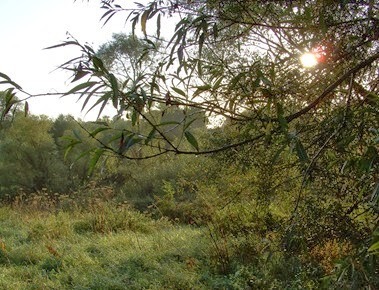
Each morning she would wake before the rest of the company, just to see the world around her. Until this journey, her father’s tower confined and defined her whole world.
Once they arrived at their destination, the walls of her husband’s tower would confine and define her life. Her whole world would end at the thick stone wall, rising on the high ground above her new Lord and Master’s lands.
No doubt, she would have a window to look through. As wife of the Lord she would – Hella presumed – have a window of her own she could look through. She would no longer have to share everything with her sisters. She would have servants too and guards of her own.
These early mornings, though, on the journey, her servants and her guards were sleeping. Several – she assumed from the noises in the darkness around her carriage in the night – with one another.
It made Hella wonder what her own wedding night would be like. She wondered too, what her husband would be like. She had not met him since the formal betrothal ten years before on his tenth birthday. She had been four at the time and more interested in her new kitten, Bojo, than in the strange boy in his formal clothing watching her from the other side of her father’s great hall.
Now she wished she’d paid more attention. She wished she’d realised at the time that the boy in the rich clothes was to be her Lord and Master for the rest of her days.
She sighed as she looked out at the strange world outside her carriage – the strange lands that lay between her father’s lands and those of her new husband. Her husband’s family had paid enough for her; she hoped they would all treat her as the expensive prize she was.
[Books by David Hadley are available here (UK) or here (US)]


